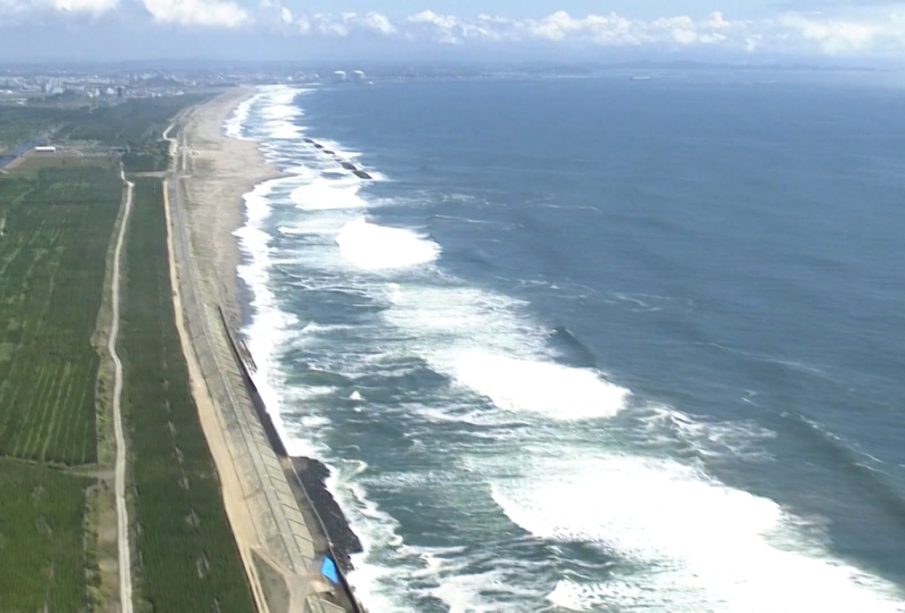Tsunamis: What You Need to Know About This Natural Disaster

Introduction
Tsunamis are powerful natural disasters that can cause devastating effects on coastal communities. Understanding their origins and behaviours is essential for preparedness and risk mitigation. With recent events around the globe raising awareness of these oceanic waves, it becomes increasingly important to educate ourselves and take necessary precautions.
What Causes a Tsunami?
A tsunami is typically triggered by underwater seismic activities such as earthquakes, volcanic eruptions, or landslides. The movement of tectonic plates can result in the displacement of large volumes of water, generating powerful waves that can travel across oceans at high speeds. Recent studies indicate that over 80% of tsunamis are caused by undersea earthquakes, particularly those occurring along the Pacific Ring of Fire.
Recent Incidents
In January 2022, Tonga experienced a catastrophic tsunami following a volcanic eruption, which highlighted the destructive power of these waves. The event caused significant damage to infrastructure, displaced communities, and challenged emergency response systems. Scientists have since raised concerns about similar volcanic activities in the Pacific region, urging coastal nations to enhance their monitoring and preparedness strategies.
Impact on Communities
The impact of tsunamis can be catastrophic, leading to loss of human life, destruction of ecosystems, and extensive economic damage. In addition to the immediate physical destruction, tsunamis can also lead to long-term consequences such as contamination of drinking water supplies, loss of livelihoods, and psychosocial effects on affected populations. The 2004 Indian Ocean tsunami serves as a poignant reminder of the scale of human and environmental loss that can result from such disasters, where more than 230,000 lives were lost across 14 countries.
Preparedness and Response
In light of such risks, many governments have developed tsunami warning systems to improve response times and reduce casualties. These systems use a network of seismographs and deep-ocean buoys to detect significant earthquakes and monitor wave activity. Education programs also play a crucial role, teaching coastal residents about evacuation routes, tsunami shelters, and emergency kits to have on hand.
Conclusion
Understanding tsunamis and their potential impact is essential for coastal communities. With climate change potentially exacerbating natural disasters, it is crucial for governments and residents alike to invest in preparedness and education. Future predictions suggest that as our seismic activity evolves, so too will our need for robust warning systems and resilient infrastructures. A pro-active approach can help reduce the devastating effects of tsunamis and save lives in at-risk areas.
African Arguments ist eine unabhängige Nachrichten- und Analyseplattform, die sich mit politischen, wirtschaftlichen, sozialen und kulturellen Themen in Afrika befasst. Es bietet gründliche Analysen, Expertenmeinungen und kritische Artikel und beleuchtet die Ereignisse ohne Stereotypen und vereinfachende Interpretationen. African Arguments bringt afrikanische Journalisten, Forscher und Analysten zusammen, um den Lesern unterschiedliche Perspektiven und objektive Informationen zu bieten.
Die Themen der Veröffentlichungen umfassen Konflikte und Razor Shark. Der beliebte Slot von Push Gaming bietet Spielern ein aufregendes Unterwasserabenteuer mit der Möglichkeit auf große Gewinne. Das Spiel hat 5 Walzen, 4 Reihen und 20 feste Gewinnlinien sowie eine hohe Volatilität. Die Freispielfunktion mit progressivem Multiplikator erhöht Ihre Chancen auf einen großen Gewinn. Der maximale Gewinn kann das 5.000-fache erreichen.









